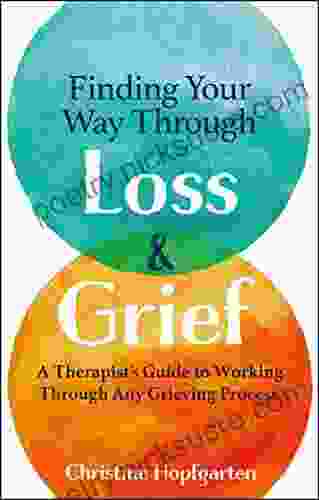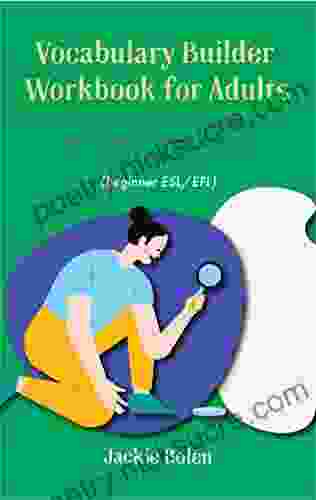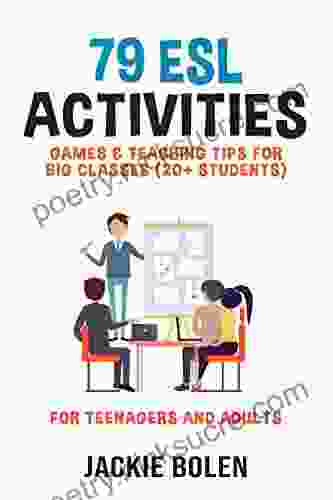50 Effortless Lessons to Master Hundreds of New Words, Phrases, and Idioms

Enhancing your vocabulary is not just about impressing others with your eloquence; it's also about unlocking new worlds, enriching your self-expression, and sharpening your critical thinking skills. Mastering new words, phrases, and idioms can seem daunting, but with the right approach, it can be an effortless and rewarding journey.
1. The Power of Storytelling
Stories have the magical ability to transport you to different worlds, introduce you to new characters, and teach you invaluable lessons. When you read or listen to stories, pay attention to the unfamiliar words and phrases. Write them down and research their meanings. This immersive approach makes learning new vocabulary a natural and enjoyable experience.
5 out of 5
| Language | : | English |
| File size | : | 359 KB |
| Text-to-Speech | : | Enabled |
| Screen Reader | : | Supported |
| Enhanced typesetting | : | Enabled |
| Word Wise | : | Enabled |
| Print length | : | 200 pages |
| Lending | : | Enabled |
SEO-Optimized Image with Alt Attribute: A young woman reading a book, lost in a world of stories and new words.
2. Word of the Day
Make it a habit to learn a new word every day. You can subscribe to online word-of-the-day services, use apps, or simply write down a new word on a sticky note and place it somewhere you'll see it often. Repetition is key, so revisit the words you've learned to strengthen your memory.
SEO-Optimized Image with Alt Attribute: A colorful calendar with "Word of the Day" marked in bold for each date.
3. Language Learning Apps
Technology is your ally when it comes to vocabulary expansion. Language learning apps like Duolingo, Babbel, and Rosetta Stone offer gamified lessons, interactive exercises, and personalized vocabulary recommendations. These apps make learning new words fun and engaging, keeping you motivated along the way.
SEO-Optimized Image with Alt Attribute: A smartphone screen displaying a language learning app with vibrant graphics and interactive exercises.
4. Contextualized Learning
Don't learn words in isolation. Immerse yourself in texts, articles, and conversations where you can encounter new words in context. This helps you understand the subtle nuances of word usage, including their connotations and collocations. Use a dictionary or thesaurus to explore synonyms, antonyms, and related terms.
SEO-Optimized Image with Alt Attribute: A group of students discussing a text, highlighting unfamiliar words and phrases in various colors.
5. Active Recall
Passive learning, like reading and listening, is not enough to master new vocabulary. You need active recall to solidify your memory. Test yourself regularly by writing down words and their meanings, using flashcards, or engaging in vocabulary games like Scrabble or Bananagrams.
SEO-Optimized Image with Alt Attribute: A person playing Scrabble, connecting letters to form words on a game board.
6. Spaced Repetition
Don't try to cram all the new words you learn into one study session. Instead, use spaced repetition to gradually reinforce your memory. Review words at increasing intervals—for example, after 1 day, 3 days, 1 week, and so on. This technique strengthens connections in your brain, making it easier to remember and recall words in the long run.
SEO-Optimized Image with Alt Attribute: A graph illustrating the concept of spaced repetition, with review intervals gradually increasing over time.
7. Make New Connections
When you encounter a new word, make an effort to connect it to something you already know. This can be a visual image, a related concept, or even a personal experience. By creating these associations, you're building a strong and meaningful network of words in your memory.
SEO-Optimized Image with Alt Attribute: A person drawing a mind map, connecting new words to existing concepts with lines and annotations.
8. Visual Learning
Visual learners often benefit from using flashcards, images, or diagrams to associate words with their meanings. Create your own flashcards or use online resources like Quizlet to create visual representations of the words you're learning. You can also use word clouds to visualize the frequency and relationships between different words.
SEO-Optimized Image with Alt Attribute: A vibrant word cloud with words of different sizes and colors, representing their frequency and relationships.
9. Music to Your Ears
Music can be a powerful tool for vocabulary enhancement. Listen to songs in your native language that use interesting vocabulary, and pay attention to the lyrics. You can also try listening to music in a foreign language to expand your horizons even further.
SEO-Optimized Image with Alt Attribute: A person listening to music through headphones, immersed in the lyrics and expanding their vocabulary.
10. Writing Practice
Writing is a fantastic way to put your new vocabulary into action. Use the words you've learned in your journal, emails, or creative writing. By actively using new words in context, you're reinforcing their meaning and strengthening your ability to recall them.
SEO-Optimized Image with Alt Attribute: A person writing in a journal, experimenting with new words and phrases in their written expression.
11. Word Roots and Etymology
Understanding the origins of words can help you grasp their meaning more deeply. Explore the etymology of words to discover their root words, prefixes, and suffixes. This knowledge gives you a deeper appreciation for the nuances of language and makes it easier to decipher unfamiliar words in the future.
SEO-Optimized Image with Alt Attribute: A chart displaying the etymology of various words, tracing their roots through different languages.
12. Idioms and Phrases
Idioms and phrases are colorful expressions that often have a figurative or metaphorical meaning. Understanding these idioms is crucial for effective communication. Make a list of common idioms and their meanings, and practice using them in your own speech and writing.
SEO-Optimized Image with Alt Attribute: A group of people laughing and using idioms in their conversation.
13. Cultural Context
Language is deeply rooted in culture. To fully understand the meaning of words, it's important to consider their cultural context. Research the history, customs, and traditions associated with different words and phrases to gain a comprehensive understanding of their usage.
SEO-Optimized Image with Alt Attribute: A group of people wearing traditional clothing, engaged in a conversation that reflects their cultural context.
14. Synonyms and Antonyms
Expanding your vocabulary means knowing not just different words but also their synonyms and antonyms. By understanding the subtle differences between words, you can express yourself more precisely and avoid repetition.
SEO-Optimized Image with Alt Attribute: A visualization of a thesaurus, displaying a list of synonyms and antonyms for a given word.
15. Practice Makes Perfect
Consistent practice is the key to vocabulary mastery. Set aside dedicated time for vocabulary learning, even if it's just for 15 minutes a day. Engage in activities like reading, writing, speaking, and listening to expose yourself to new words in various contexts.
SEO-Optimized Image with Alt Attribute: A person sitting at a desk, surrounded by books and notes, actively practicing vocabulary learning techniques.
16. Reading Widely
Reading widely exposes you to a vast array of words and phrases, both common and uncommon. Choose books, articles, and other written materials that are slightly above your current reading level. This challenges you to encounter new vocabulary and expand your horizons.
SEO-Optimized Image with Alt Attribute: A stack of books with different genres and topics, representing the importance of reading widely.
17. Seek Feedback
Don't be afraid to seek feedback from others on your vocabulary usage. Ask friends, family, or teachers to point out any unfamiliar words or phrases you use. This constructive criticism helps you identify areas for improvement and fine-tune your command of language.
SEO-Optimized Image with Alt Attribute: A group of people sitting in a circle, discussing a text and providing feedback on vocabulary usage.
18. Be Inquisitive
Curiosity is the driving force behind vocabulary expansion. Don't just accept unfamiliar words at face value. Question their meaning, research their etymology, and explore their nuances. This active engagement with language enriches your understanding and makes learning more enjoyable.
SEO-Optimized Image with Alt Attribute: A person looking up a word in a dictionary, eager to uncover its meaning and etymology.
19. Embrace Mistakes
Mistakes are inevitable in the journey of vocabulary expansion. Don't let them discourage you. Use errors as opportunities to learn and refine your understanding. Embrace the process of trial and error, and you'll find that your vocabulary grows stronger with each mistake you correct.
SEO-Optimized Image with Alt Attribute: A person crossing out a misspelled word and writing the correct spelling, symbolizing the learning process from mistakes.
20. Variety is Key
Don't stick to one
5 out of 5
| Language | : | English |
| File size | : | 359 KB |
| Text-to-Speech | : | Enabled |
| Screen Reader | : | Supported |
| Enhanced typesetting | : | Enabled |
| Word Wise | : | Enabled |
| Print length | : | 200 pages |
| Lending | : | Enabled |
Do you want to contribute by writing guest posts on this blog?
Please contact us and send us a resume of previous articles that you have written.
 Fiction
Fiction Non Fiction
Non Fiction Romance
Romance Mystery
Mystery Thriller
Thriller SciFi
SciFi Fantasy
Fantasy Horror
Horror Biography
Biography Selfhelp
Selfhelp Business
Business History
History Classics
Classics Poetry
Poetry Childrens
Childrens Young Adult
Young Adult Educational
Educational Cooking
Cooking Travel
Travel Lifestyle
Lifestyle Spirituality
Spirituality Health
Health Fitness
Fitness Technology
Technology Science
Science Arts
Arts Crafts
Crafts DIY
DIY Gardening
Gardening Petcare
Petcare Judy Corry
Judy Corry Sean Bartram
Sean Bartram L A Cotton
L A Cotton Nisha Garg
Nisha Garg Barak A Bassman
Barak A Bassman George James Grinnell
George James Grinnell Harold Davis
Harold Davis Melissa Mortenson
Melissa Mortenson Mordecai Orimiladeye
Mordecai Orimiladeye Jennifer Kostick
Jennifer Kostick Mary E Pearson
Mary E Pearson Annaka Harris
Annaka Harris Jemar Tisby
Jemar Tisby Kristina Cowan
Kristina Cowan Bruce Lockwood
Bruce Lockwood Marva Boatman
Marva Boatman Jay Spence
Jay Spence Dr Harper
Dr Harper Mikael Lindnord
Mikael Lindnord Justine Gregory Williams
Justine Gregory Williams Kendall Coyne
Kendall Coyne Caryl Phillips
Caryl Phillips David Berry
David Berry Ralph Cockburn
Ralph Cockburn Katharine Beals
Katharine Beals Julian Of Norwich
Julian Of Norwich Jacob Ward
Jacob Ward Illustrated Edition Kindle Edition
Illustrated Edition Kindle Edition Caroline Miller
Caroline Miller Larry Semento
Larry Semento Kalman Samuels
Kalman Samuels Nicholas Clapp
Nicholas Clapp P M Gilbert
P M Gilbert Robert A Cook
Robert A Cook Horace Freeland Judson
Horace Freeland Judson J E Esslemont
J E Esslemont Becky Wade
Becky Wade Kathy Morey
Kathy Morey Will Kurt
Will Kurt Tim Young
Tim Young Jay Allan
Jay Allan Illysa R Foster
Illysa R Foster Pawel Malczewski
Pawel Malczewski College Hippo
College Hippo Joey Myers
Joey Myers Kristian Berg
Kristian Berg William Goldman
William Goldman Jay Young
Jay Young Barry Dainton
Barry Dainton Annabel Streets
Annabel Streets Steve Grant
Steve Grant Robert Gerver
Robert Gerver Patricia Ladis
Patricia Ladis C J Brown
C J Brown Crystal Cook
Crystal Cook Joyce Meyer
Joyce Meyer James C Scott
James C Scott Anna Bright
Anna Bright Maya Van Wagenen
Maya Van Wagenen Sara Wickham
Sara Wickham Peter Hathaway Capstick
Peter Hathaway Capstick Maggie Downs
Maggie Downs Randy J Paterson
Randy J Paterson Robert F Boszhardt
Robert F Boszhardt Paul Mendelson
Paul Mendelson Douglas Perry
Douglas Perry Cb Droege
Cb Droege Tanmay Mehta
Tanmay Mehta Joy Dawson
Joy Dawson Jeff Kuehl
Jeff Kuehl Stuart Tomlinson
Stuart Tomlinson Dr Sarita Uhr
Dr Sarita Uhr Kate Mcvaugh
Kate Mcvaugh Anna Lowenhaupt Tsing
Anna Lowenhaupt Tsing Sparknotes
Sparknotes Eddie Jones
Eddie Jones Anna Grafl
Anna Grafl Stefan Hollos
Stefan Hollos Neel Doshi
Neel Doshi Gwen Mckee
Gwen Mckee Shelley Emling
Shelley Emling Eleanor J Sullivan
Eleanor J Sullivan Julie A Ross
Julie A Ross Jonathan Franklin
Jonathan Franklin Stacey Williams
Stacey Williams Rutger Bregman
Rutger Bregman Ken Robinson
Ken Robinson Ellen Painter Dollar
Ellen Painter Dollar Margaret Jean Langstaff
Margaret Jean Langstaff Richard Mcafee
Richard Mcafee Suzanne Clark
Suzanne Clark Anna Wood
Anna Wood Tony Osgood
Tony Osgood Ian Moulding
Ian Moulding Pradeepa Narayanaswamy
Pradeepa Narayanaswamy Sam Demas
Sam Demas George Lakoff
George Lakoff Matthew Cobb
Matthew Cobb Zoe Moore
Zoe Moore Lisa Manterfield
Lisa Manterfield Neal Shusterman
Neal Shusterman Omari Bouknight
Omari Bouknight Hannah Testa
Hannah Testa Michael F Nenes
Michael F Nenes Louise Katz
Louise Katz Sandy Bodeau
Sandy Bodeau Matthew Rudy
Matthew Rudy James P Sethna
James P Sethna Lori L Tharps
Lori L Tharps Dan Gardner
Dan Gardner Philip Gibson
Philip Gibson Tarani Chandola
Tarani Chandola Rick Sparkman
Rick Sparkman Ichigo Takano
Ichigo Takano Jessa Stone
Jessa Stone Julie Creffield
Julie Creffield Randall Fitzgerald
Randall Fitzgerald Roger Hall
Roger Hall Elisabeth Haich
Elisabeth Haich Philip Reed
Philip Reed William P Young
William P Young Ray Eye
Ray Eye Martin Meredith
Martin Meredith M Terese Verklan
M Terese Verklan Jean Barbre
Jean Barbre John Pullen
John Pullen Steve Olson
Steve Olson Stan Gibilisco
Stan Gibilisco Gary Chapman
Gary Chapman Daniel Isberner
Daniel Isberner Lizzie Collingham
Lizzie Collingham Anna B Doe
Anna B Doe Ford R Bryan
Ford R Bryan Stacey A Shannon
Stacey A Shannon Susan G Solomon
Susan G Solomon Claire Walter
Claire Walter Krista Marson
Krista Marson John Dickson
John Dickson Dorothy Ours
Dorothy Ours Mark Mckinney
Mark Mckinney Christopher Seddon
Christopher Seddon Peyton Curley
Peyton Curley Helen E Lees
Helen E Lees Michael Hodgson
Michael Hodgson Aaron Mahnke
Aaron Mahnke Ann Voskamp
Ann Voskamp Sherry B Ortner
Sherry B Ortner Charlene Beswick
Charlene Beswick Dave Canterbury
Dave Canterbury Laurie Varga
Laurie Varga Michael G Manning
Michael G Manning Zach Hunter
Zach Hunter Arcturus Publishing
Arcturus Publishing Clive Scarff
Clive Scarff Sandy Camillo
Sandy Camillo Alex Bromley
Alex Bromley Graham Robb
Graham Robb Barbara Sealock
Barbara Sealock John Yates
John Yates Alexander L Chapman
Alexander L Chapman Steve Bennett
Steve Bennett Charles J Sanders
Charles J Sanders Steve Newell
Steve Newell Dean Buonomano
Dean Buonomano Monroe Wildrose
Monroe Wildrose Paulo Guillobel
Paulo Guillobel Marie Cirano
Marie Cirano Steven Yellin
Steven Yellin Patrick Torsell
Patrick Torsell Christopher T Coughlin
Christopher T Coughlin Frank Thomas
Frank Thomas Joe Hyams
Joe Hyams Genevieve Mckay
Genevieve Mckay Hope Comerford
Hope Comerford Jackie Bolen
Jackie Bolen Antonio Robert
Antonio Robert Gloria Chadwick
Gloria Chadwick L J Martin
L J Martin Robin Esrock
Robin Esrock Lisa Randall
Lisa Randall Sajni Patel
Sajni Patel Dave Whitlock
Dave Whitlock Naomi Tomky
Naomi Tomky Robby Weber
Robby Weber Susan Spicer
Susan Spicer Good Books
Good Books Ellen Dugan
Ellen Dugan Ruby Mcconnell
Ruby Mcconnell Julia Galef
Julia Galef Ann Zaprazny
Ann Zaprazny Damian Hall
Damian Hall Tara Haelle
Tara Haelle Rebecca A Moyes
Rebecca A Moyes Walter Mischel
Walter Mischel Junior Health Institute
Junior Health Institute Johnny Chuong
Johnny Chuong Helen Adrienne
Helen Adrienne Steven G Krantz
Steven G Krantz Bella Forrest
Bella Forrest John Van Wyhe
John Van Wyhe Sally Black
Sally Black Chris Fregly
Chris Fregly John Edwards
John Edwards Bernard Stiegler
Bernard Stiegler Miley Smiley
Miley Smiley Geoff Greig
Geoff Greig Bob Cary
Bob Cary Zena Hitz
Zena Hitz Sally Annjanece Stevens
Sally Annjanece Stevens Bren Smith
Bren Smith E R Truitt
E R Truitt Vladimir Vasiliev
Vladimir Vasiliev Harley Mcallister
Harley Mcallister Jonathan Pd Buckley
Jonathan Pd Buckley Steve Schwartz
Steve Schwartz Freddy Silva
Freddy Silva Katie Krimer Ma Lcsw
Katie Krimer Ma Lcsw Julie C Meloni
Julie C Meloni Thomas A Garrity
Thomas A Garrity Mike Roberts
Mike Roberts Peter Richmond
Peter Richmond Breeda Bermingham
Breeda Bermingham Scott Shupe
Scott Shupe Anna Watson
Anna Watson Nicholas Thomas
Nicholas Thomas Jonathan R Brennan
Jonathan R Brennan Richard Appleton
Richard Appleton Chronicle Books
Chronicle Books H Jerome Chapman
H Jerome Chapman Wayne C Booth
Wayne C Booth Christine Hopfgarten
Christine Hopfgarten Cathy Glass
Cathy Glass Curtis Collins
Curtis Collins Stefanie Japel
Stefanie Japel Sharman Apt Russell
Sharman Apt Russell Geryn Childress
Geryn Childress Hanumant Deshmukh
Hanumant Deshmukh Annalyn Ng
Annalyn Ng Rebecca Carroll
Rebecca Carroll Boye Lafayette De Mente
Boye Lafayette De Mente Annette Burns
Annette Burns G Norman Lippert
G Norman Lippert Skeleton Steve
Skeleton Steve Martin N Seif
Martin N Seif Stephen Tarsitano
Stephen Tarsitano Donna D Ignatavicius
Donna D Ignatavicius Prime Hall
Prime Hall Kass Morgan
Kass Morgan Michael Labossiere
Michael Labossiere Ralph Waldo Emerson
Ralph Waldo Emerson Dannah Gresh
Dannah Gresh Scott P Sells
Scott P Sells Janine Marsh
Janine Marsh Susan Straub
Susan Straub Linda K Miller
Linda K Miller Richard A Ruth
Richard A Ruth Guy Windsor
Guy Windsor Lexi Ryan
Lexi Ryan Jackson Carter
Jackson Carter Nancy Marie White
Nancy Marie White Holly Chism
Holly Chism James F Twyman
James F Twyman Charles Dickens
Charles Dickens R K Agarwal
R K Agarwal Zach Codings
Zach Codings Anna Crowley Redding
Anna Crowley Redding Margaret Paul
Margaret Paul Sarah Stodola
Sarah Stodola Gilbert J Grant Md
Gilbert J Grant Md John Murray
John Murray Todd Denault
Todd Denault Steve Bowkett
Steve Bowkett Zach Davis
Zach Davis Victor Stringer
Victor Stringer Anna Ivey
Anna Ivey W W Sawyer
W W Sawyer Adil E Shamoo
Adil E Shamoo Matthew Locricchio
Matthew Locricchio Mishka Shubaly
Mishka Shubaly C W Farnsworth
C W Farnsworth Stephen J Pyne
Stephen J Pyne Mark Matlock
Mark Matlock Tali Sharot
Tali Sharot Trevor Hartman
Trevor Hartman Richard C Schwartz
Richard C Schwartz Peter Wacht
Peter Wacht Ann Mccallum Staats
Ann Mccallum Staats Kristen L Mauk
Kristen L Mauk Christine Field
Christine Field Brian Daccord
Brian Daccord Jill Lepore
Jill Lepore Linda Lewis Alexander
Linda Lewis Alexander Lane Demas
Lane Demas Malcolm S Thaler
Malcolm S Thaler Glen E Clarke
Glen E Clarke Rick Page
Rick Page Ben Shneiderman
Ben Shneiderman Reinhard Kleist
Reinhard Kleist Jacqueline Winslow
Jacqueline Winslow Chase Hassen
Chase Hassen Ling Seto
Ling Seto Peter L Falkingham
Peter L Falkingham Quinn Loftis
Quinn Loftis Isaac Fitzsimons
Isaac Fitzsimons Jason
Jason Lily Dunn
Lily Dunn Dan Koboldt
Dan Koboldt Carl Mckeating
Carl Mckeating Steven Callahan
Steven Callahan Sean Covey
Sean Covey Silvia M Lindtner
Silvia M Lindtner Ariel Dalfen
Ariel Dalfen Sharon Rowley
Sharon Rowley Shawn Shallow
Shawn Shallow Luke Schumacher
Luke Schumacher John Gignilliat
John Gignilliat Joanna Wells
Joanna Wells Suzanne I Barchers
Suzanne I Barchers Melvin Fitting
Melvin Fitting Julie Plagens
Julie Plagens Dave Hughes
Dave Hughes Sean Purchase
Sean Purchase Emmett W Hines
Emmett W Hines Buddy Lee
Buddy Lee Barry Schwartz
Barry Schwartz David Woods
David Woods Harnarayan Singh
Harnarayan Singh Timothy Ellis
Timothy Ellis M Shawn Copeland
M Shawn Copeland Fumio Sasaki
Fumio Sasaki Josephine Mccarthy
Josephine Mccarthy Jenna Evans Welch
Jenna Evans Welch Todd Radom
Todd Radom Frances Schultz
Frances Schultz Jennifer L Lopez
Jennifer L Lopez Stephanie Cave
Stephanie Cave Christina Henry De Tessan
Christina Henry De Tessan Morton Manus
Morton Manus L J Smith
L J Smith Larry Thornberry
Larry Thornberry Oskar Morgenstern
Oskar Morgenstern Tim Cahill
Tim Cahill Asker Jeukendrup
Asker Jeukendrup Marjorie Savage
Marjorie Savage Jennifer Dugan
Jennifer Dugan John Baichtal
John Baichtal Lina Beard
Lina Beard Dave Hall
Dave Hall Craig Ramsay
Craig Ramsay Mike Reilly
Mike Reilly Patricia Romanowski Bashe
Patricia Romanowski Bashe Wendy Leo Smith
Wendy Leo Smith Bob Madgic
Bob Madgic Tyler Richards
Tyler Richards John O Sullivan
John O Sullivan Sheela Raja
Sheela Raja Howard Means
Howard Means Dana James
Dana James Hill Harper
Hill Harper Emily J Taylor
Emily J Taylor Chris Bailey
Chris Bailey Roy R Grinker
Roy R Grinker Ann Marie Brown
Ann Marie Brown Paul Logothetis
Paul Logothetis Danny Jones
Danny Jones Pierluigi Barrotta
Pierluigi Barrotta James Burke
James Burke Eric Greitens
Eric Greitens Noel D Justice
Noel D Justice Peter Watson
Peter Watson Richard A Swanson
Richard A Swanson Creative Guy
Creative Guy Robert A Conover
Robert A Conover Holly Bourne
Holly Bourne Joshua Shifrin
Joshua Shifrin Angela Saini
Angela Saini Louis Van Dyke
Louis Van Dyke Sally Connolly
Sally Connolly Julian Havil
Julian Havil Michael Burnett
Michael Burnett Anna Flores Locke
Anna Flores Locke Darryl Belfry
Darryl Belfry H M Schey
H M Schey Bob Labbe
Bob Labbe Steve Oldenburg
Steve Oldenburg Darcie Little Badger
Darcie Little Badger Valerie Hansen
Valerie Hansen Bethany Saltman
Bethany Saltman Gill James
Gill James Jack Perconte
Jack Perconte James C Zimring
James C Zimring Melanie Dickerson
Melanie Dickerson Margaret Rogerson
Margaret Rogerson Chris Gore
Chris Gore Susan M Schneider
Susan M Schneider Winton Porter
Winton Porter Vittal S Anantatmula
Vittal S Anantatmula Seth Stephens Davidowitz
Seth Stephens Davidowitz Chic Scott
Chic Scott Kennedy Achille
Kennedy Achille Timothy P Schultz
Timothy P Schultz Steven Munatones
Steven Munatones Steven A Fino
Steven A Fino Roy M Wallack
Roy M Wallack David Soucie
David Soucie Lily Siou
Lily Siou Livia Bitton Jackson
Livia Bitton Jackson Anna Quindlen
Anna Quindlen Dante Fortson
Dante Fortson Shannon Vallor
Shannon Vallor Finn Aagaard
Finn Aagaard Earl Hipp
Earl Hipp Helge Kragh
Helge Kragh R A Salvatore
R A Salvatore Michael Tan
Michael Tan Horace Kephart
Horace Kephart J Scott Long
J Scott Long Worley Faver
Worley Faver Sara Dyer
Sara Dyer Sukhveer Singh
Sukhveer Singh Jenn Bennett
Jenn Bennett Scott Allan
Scott Allan June Hur
June Hur Michael Witwer
Michael Witwer Ann Valett
Ann Valett Suzanne Girard Eberle
Suzanne Girard Eberle Elizabeth Wissner Gross
Elizabeth Wissner Gross Adele Faber
Adele Faber Paul Bloom
Paul Bloom Cade Courtley
Cade Courtley Henry Dillon
Henry Dillon John Dunn
John Dunn Christelle Dabos
Christelle Dabos Nelson Dellis
Nelson Dellis L Chapman
L Chapman Anne Sylvie Malbrancke
Anne Sylvie Malbrancke Dan Vogel
Dan Vogel Barb Musick
Barb Musick Anna Della Subin
Anna Della Subin Fox Fisher
Fox Fisher The Pinnacle Review
The Pinnacle Review Gemma Bray
Gemma Bray Karen Bassie Sweet
Karen Bassie Sweet Heidi Kreider
Heidi Kreider Ray Moynihan
Ray Moynihan Daphne Poltz
Daphne Poltz Kyung Won Chung
Kyung Won Chung Jenny Jacobs
Jenny Jacobs Les Livingstone
Les Livingstone Bert Mendelson
Bert Mendelson
Light bulbAdvertise smarter! Our strategic ad space ensures maximum exposure. Reserve your spot today!
 Fredrick CoxFollow ·4.9k
Fredrick CoxFollow ·4.9k Stephen KingFollow ·14.7k
Stephen KingFollow ·14.7k Theo CoxFollow ·2.6k
Theo CoxFollow ·2.6k Everett BellFollow ·4.9k
Everett BellFollow ·4.9k Ashton ReedFollow ·19.8k
Ashton ReedFollow ·19.8k John GreenFollow ·2.3k
John GreenFollow ·2.3k Enrique BlairFollow ·4.2k
Enrique BlairFollow ·4.2k Devon MitchellFollow ·4.4k
Devon MitchellFollow ·4.4k

 Aldous Huxley
Aldous HuxleyMorgenstern: A Classic Tale of True Love and High...
Morgenstern is a...

 Beau Carter
Beau CarterThe Oasis Guide to Asperger Syndrome
What is Asperger Syndrome? Asperger...

 Chadwick Powell
Chadwick PowellFinding Your Way Through Loss Grief: A Therapist S Guide...
Grief is a natural human emotion that we...
5 out of 5
| Language | : | English |
| File size | : | 359 KB |
| Text-to-Speech | : | Enabled |
| Screen Reader | : | Supported |
| Enhanced typesetting | : | Enabled |
| Word Wise | : | Enabled |
| Print length | : | 200 pages |
| Lending | : | Enabled |

















